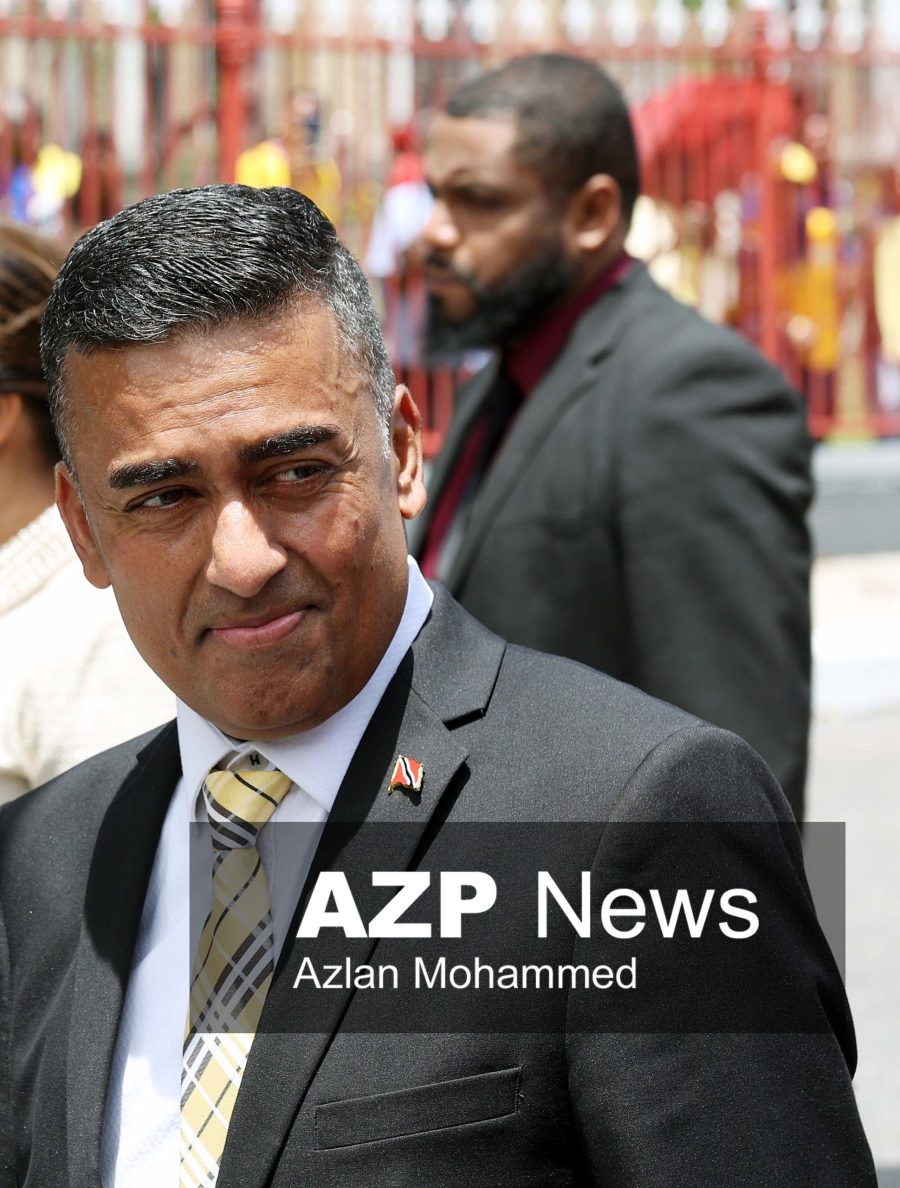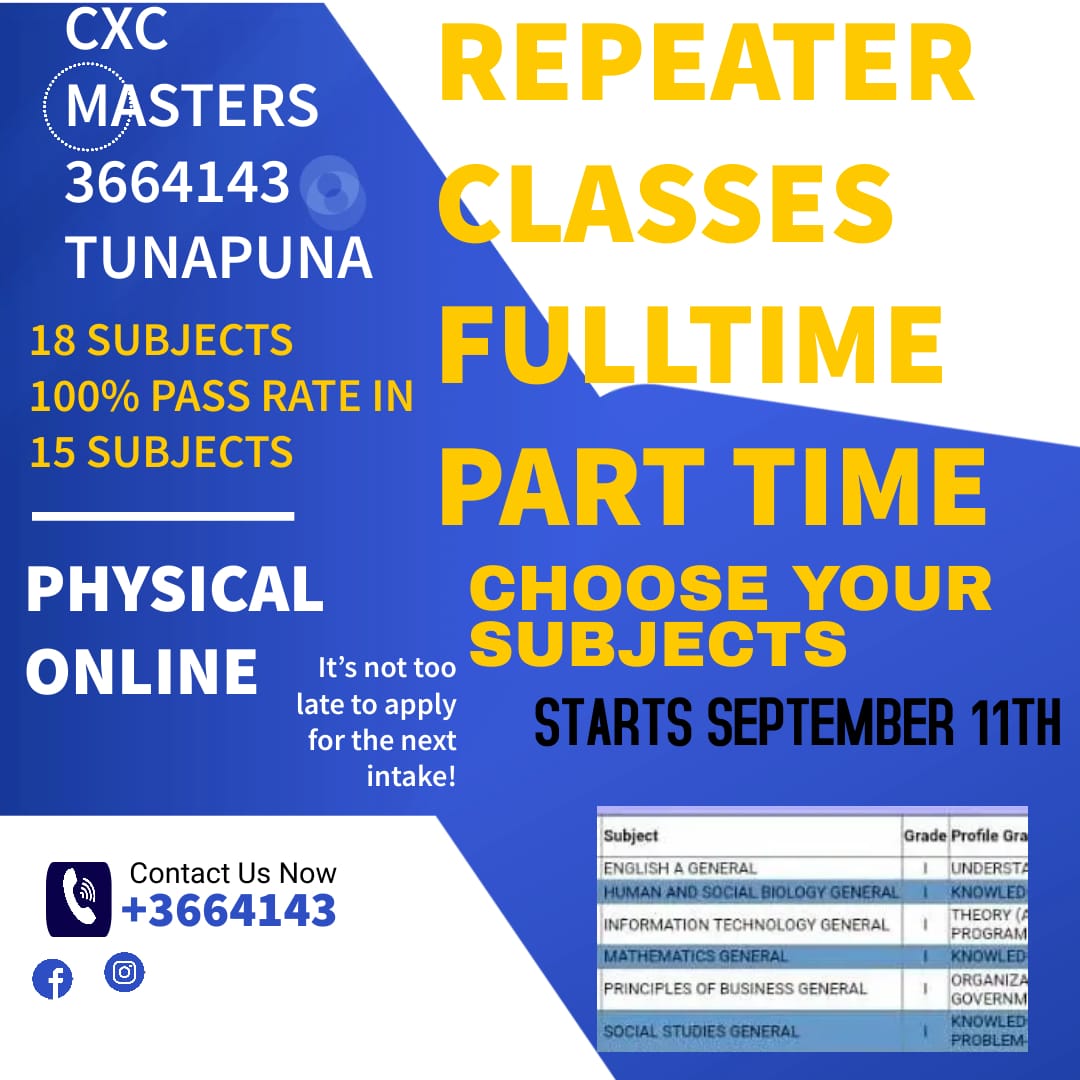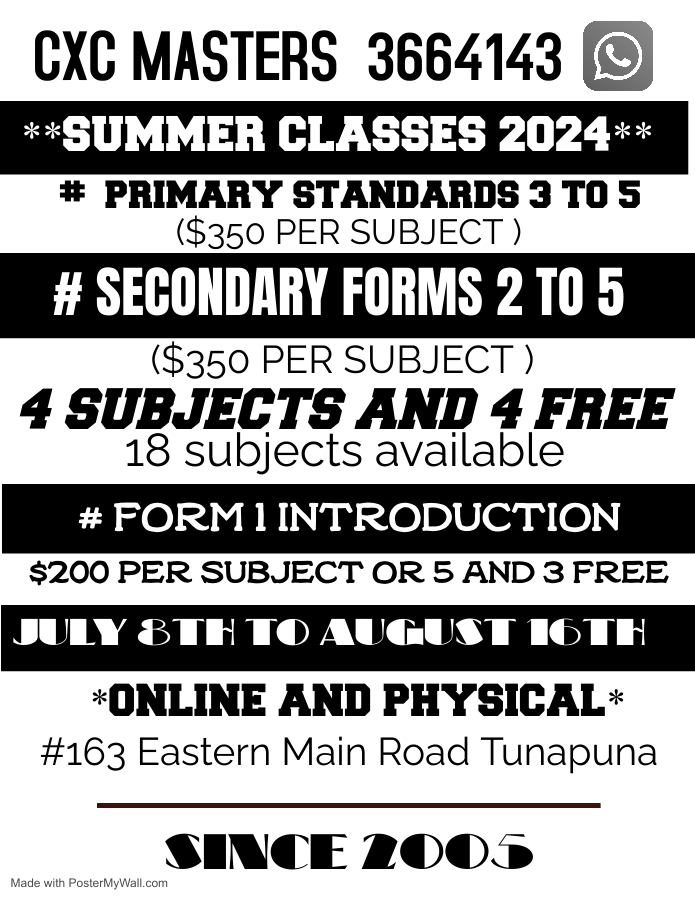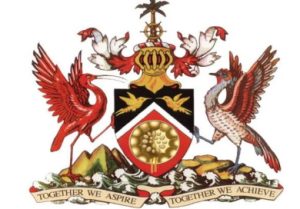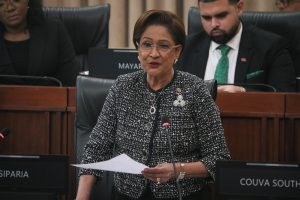Caption: Minister of Finance Davendranath Tancoo
By Sue-Ann Wayow
THE mid-year budget review is scheduled for Wednesday, June 18, 2025.
It will be the first budget review under this United National Congress (UNC) government led by Prime Minister Kamla Persad-Bissessar since winning the April 28 general election.
She announced the date during the post-Cabinet media briefing held at the Red House, Port of Spain on Thursday.
The Standing Finance Committee will meet on June 16.
Persad-Bissessar said, “That is a very important exercise because we have to find money, we have to shift money from one head to another head so that we can continue running the government until the end of the fiscal year.”
She added that as usual in September or October, the budget will be ready for 2026.
“In the interim, we are in a very crucial period to continue the funding of the government, government agencies and departments,” Persad-Bissessar said.
She said the necessary exercises were taken place which required some time as with any new administration.
When asked when confirmation will be given to begin negotiations for the Public Services Association wage increases as previously promised, Persad-Bissessar said she could not give a definite date but replied, “As soon as we can.”
She added, “It is at the top of our burner. It is a high priority item.”
The prime minister was also asked when she would be travelling to Tobago.
She again replied, “Soon.”
Persad-Bissessar said at the moment, the main focus was the mid-year review.
It was consuming a lot of time as well as board appointments.
“Without the boards, you cannot effectively govern. A lot of the decisions have to be made by boards.”
Persad-Bissessar had campaigned heavily on at least a ten per cent wage increase for public servants, highlighting repeatedly the wastage of state funds.
Since her Cabinet meetings, she has been laying out where spending would be curbed including the capping of vehicle purchases for Members of Parliament, cutting of private security for some former state personnel, cutting back on state house rental amongst the reduction of other state benefits.
Persad-Bissessar said to increase revenue streams from now until the mid-year review would be challenging.
“The biggest challenge is really to find the money. This is why we are trying to cut costs where we can.”
She said the treasury bills have already been advertised which should bring in state revenue and some loans would be renegotiated.
Treasury bills, short-term debt instruments issued by the government, offer accessible investment opportunities in Trinidad and Tobago.
With periods spanning three months, six months, or one year, these bills are open to both individuals and companies across the country according to the Central Bank’s website.
![]()


